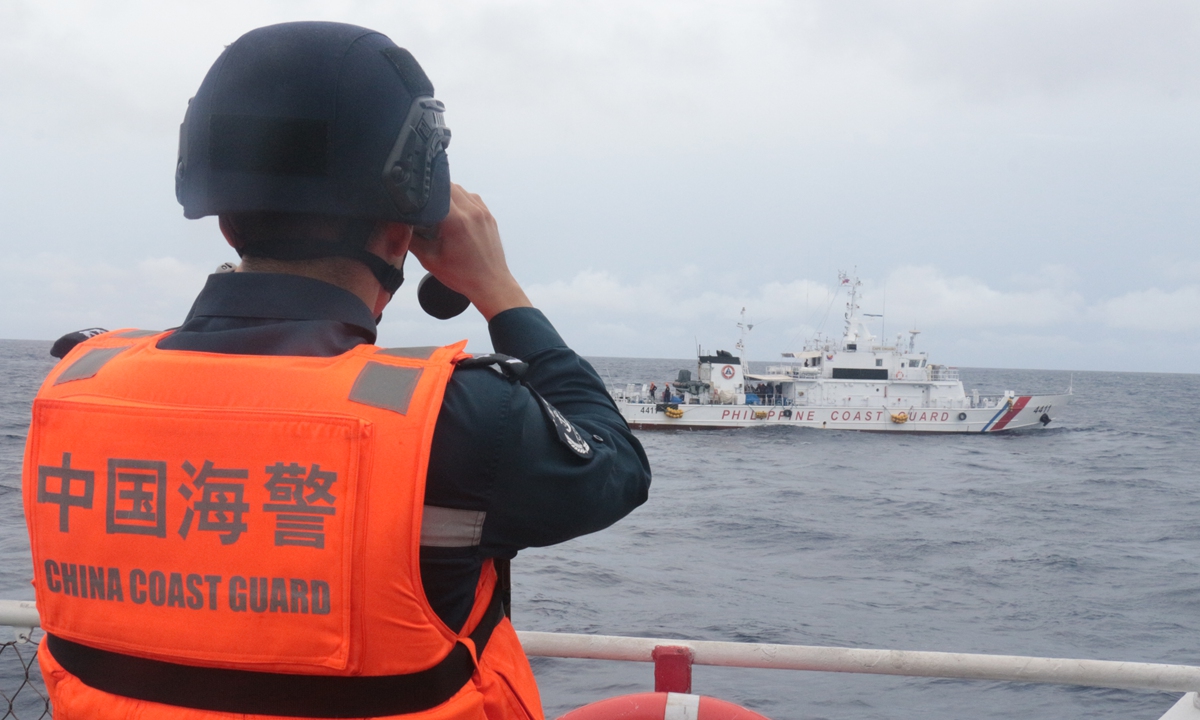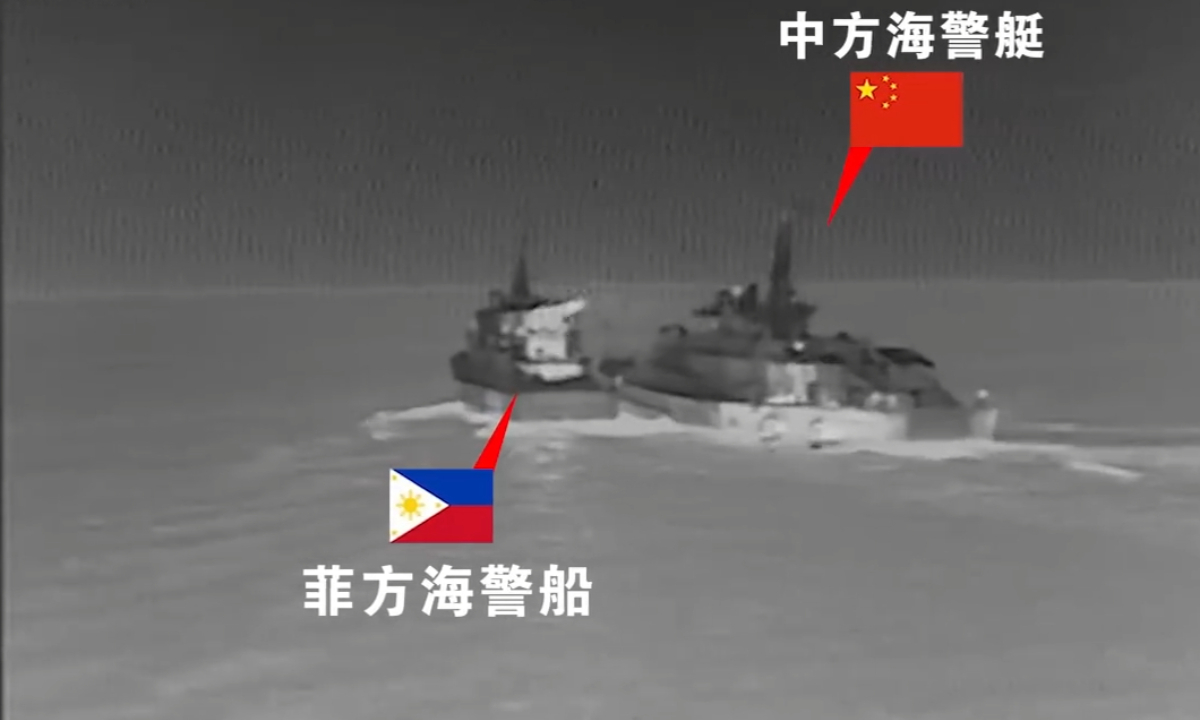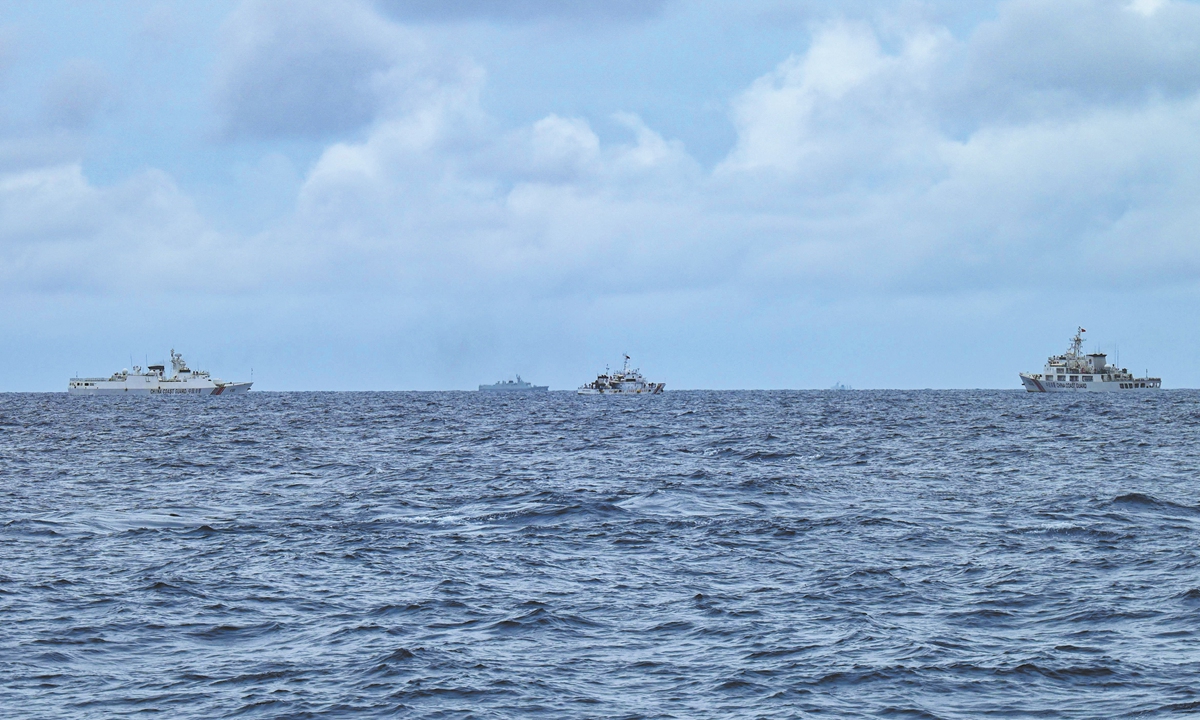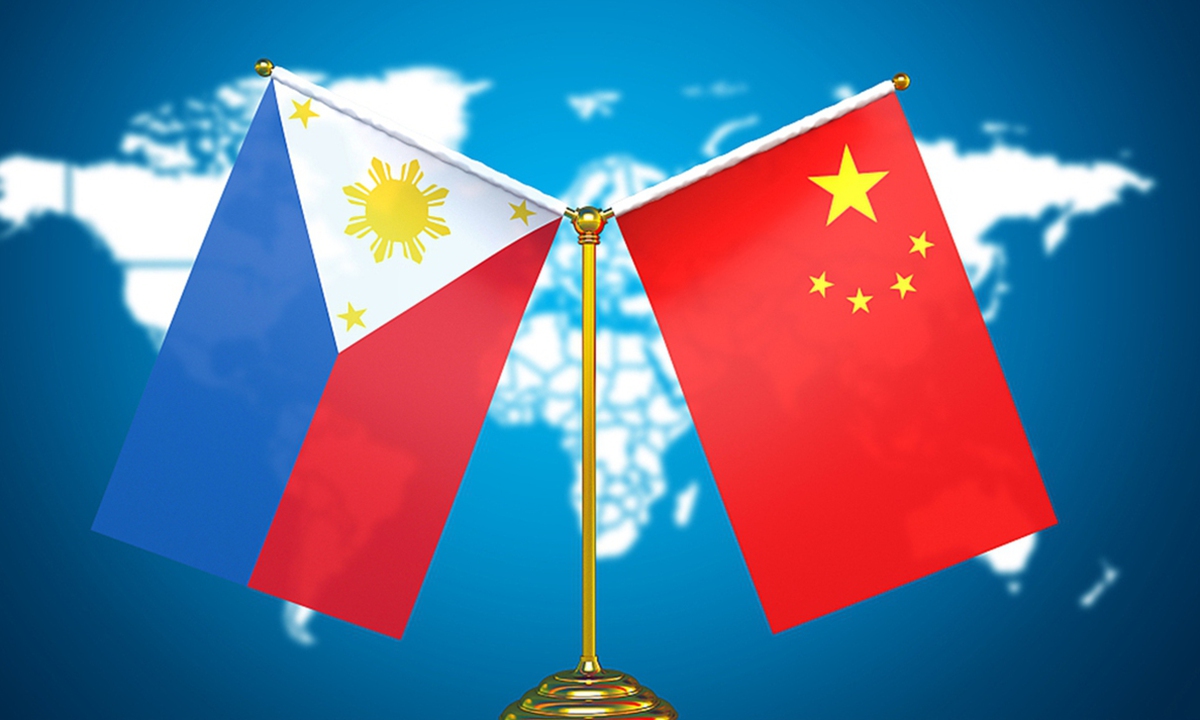Philippine ship’s withdrawal from Xianbin Jiao shows China properly managed the situation, but vigilance toward future provocations necessary: experts

On August 26, 2024, an officer from China Coast Guard monitors Philippine Coast Guard ship 4411 which ilegally intruded into waters near China's Xianbin Jiao. Photo: China Coast Guard
A China Coast Guard (CCG) spokesperson confirmed on Sunday that the Philippine Coast Guard ship MRRV-9701 left the lagoon of China's Xianbin Jiao (also known as Xianbin Reef) in the South China Sea around 2pm on Saturday. This marks the temporary conclusion of the standoff that began on April 17, when the Philippine ship illegally intruded and anchored at Xianbin Jiao for nearly five months. Experts interviewed by the Global Times on Sunday highlighted that China's successful response thwarted the Philippines' goals, leaving withdrawal as their only option. However, based on recent Philippine movements, this may not be the end of their provocations in the South China Sea. China must remain vigilant as the Philippines may attempt to shift similar tactics to other islands and reefs, for which China is also prepared to respond and counter at any time.
After previously publicly declaring that the Philippines would not withdraw from the waters of Xianbin Jiao, the Philippine National Maritime Council released a statement on Sunday, stating that after more than five months at sea, 9701 is now "sailing back to her homeport with her mission accomplished."
Based on what the Global Time has learned, the withdrawal of ship 9701 from China's Xianbin Jiao, where it had illegally anchored for nearly five months, occurred three days after the meeting between heads of the China-Philippines Bilateral Consultation Mechanism on the South China Sea on Wednesday. However, the Philippines did not notify China in advance of the withdrawal. The departure signifies the failure of this round of Philippine provocations and represents a phased step toward peace and stability in the South China Sea.
"If the Philippines tries to package 9701's withdrawal as a 'victory' after completing its 'mission,' it would be absurd," Xue Chen, a research fellow at Shanghai Institutes for International Studies, told the Global Times on Sunday. He pointed out that the August 28 air-dropped supplies were clearly insufficient, and the ship's withdrawal was more likely an act of desperation as its supplies ran low. Xue further noted that the Philippines and its backers often portray such "victories" to suggest that US commitments are "effective," but this holds little practical value beyond providing self-comfort to a small group of elites and their supporters.
Chen Xidi, a research fellow at the China Institute for Marine Affairs of the Ministry of Natural Resources, stated that the Philippines' provocations were evident from the outset in this incident, but China's successful handling of the situation left the Philippines no choice but to withdraw.
China took firm control measures and expressed determined diplomatic stance, defending its sovereignty and jurisdiction over Xianbin Jiao and its adjacent waters. That made it impossible for the Philippine ship 9701 to quasi-ground for long, and shattered Manila's illusion of forcing China to abandon its bottom line, said Chen..
Meanwhile China acted calmly and professionally to handle the Philippines' illegal activities, which thwarted their attempts to stir up international public opinion, said Chen.
Chen added that China also actively engaged in communication with the Philippines, showing goodwill while maintaining its bottom line, and urged the Philippines to withdraw its vessel and personnel voluntarily to prevent further escalation.
Although the Philippine authorities appear reluctant to acknowledge the "withdrawal," media reports paint a different picture. According to Philippine media, the crew survived on rice porridge for three weeks and had exhausted their food supply two days before returning. They also ran out of drinking water. Photos showed several crew members being administered IV drips and carried ashore on stretchers. Others attended a ceremony held by Philippine authority, which the Philippine Coast Guard Commander Ronnie Gil Gavan attended.
Xue predicted that the Philippines is likely to adopt a "playing victim" strategy next, accusing China of obstructing humanitarian aid and supply to the ship. However, in reality, it is 9701 that had illegally intruded and forcibly anchored in the Xianbin Jiao lagoon. The ship has been fully capable of leaving on its own. The so-called "humanitarian supply crisis" is a fabrication by the Philippines. In fact, Chinese vessels exercising control in the nearby waters did not obstruct the departure of the Philippine ship from Xianbin Jiao, and as soon as the ship left the lagoon, the so-called "crisis" disappeared.
Chen also emphasized that this dispute was driven by the Philippine side's attempt to stir up troubles at Xianbin Jiao through radical maritime actions, aiming to fabricate a negative image of China in order to gain attention and support from external powers. The Philippines also sought to escalate tensions and conflicts to draw external powers further into the South China Sea dispute..
However, regardless of how the Philippines tries to frame its withdrawal, experts believe this is unlikely to be the end of its provocations in the South China Sea. They suggest China should remain vigilant and prevent the Philippines from repeating similar tactics in the future. .
"The withdrawal does not mean the Philippines will give up," said Xue. He added that the Philippines might accuse China of "remaining" at Xianbin Jiao, conveniently ignoring that China has the legal right to patrol its jurisdictional waters. Furthermore, the Philippines neither informed China of 9701's withdrawal in advance nor indicated its future plans.
According to the latest statement from the National Maritime Council of the Philippines, the 9701 will "resume her mission" after resupplied. Whether it will return to Xianbin Jiao or be replaced by another ship remains a concern. However, for the Philippines, the lesson should be clear: any new provocation will be met with stronger responses from China, regardless of whether any third-party warships provide "escort" for their next "mission." Even if the Philippines shifts such illegal actions to other regions in the South China Sea, China will always be prepared to reposition and intercept as necessary.
Chen also suggests that regardless of the Philippine side's true intentions behind withdrawing its ship and personnel from Xianbin Jiao, China's determination to protect its territorial sovereignty and maritime rights will not waver, and its commitment to resolving South China Sea disputes peacefully under international law and the Declaration on the Conduct of Parties in the South China Sea remains unchanged. Chen further noted that China will never allow a repeat of the situation at Ren'ai Jiao to occur at Xianbin Jiao and has the capability to ensure this will not happen in the future.
"Philippines should not harbor any illusions, nor is there any need to return or test China's redline by other means," said Chen. The withdrawal of the 9701 and its personnel from Xianbin Jiao should mark the beginning of the Philippines returning to the right track on the South China Sea dispute, rather than a mere "interlude." This is not only the shared vision of China and other countries that genuinely wish to build the South China Sea into a region of peace and cooperation, but also in the best interest of the Philippines.



